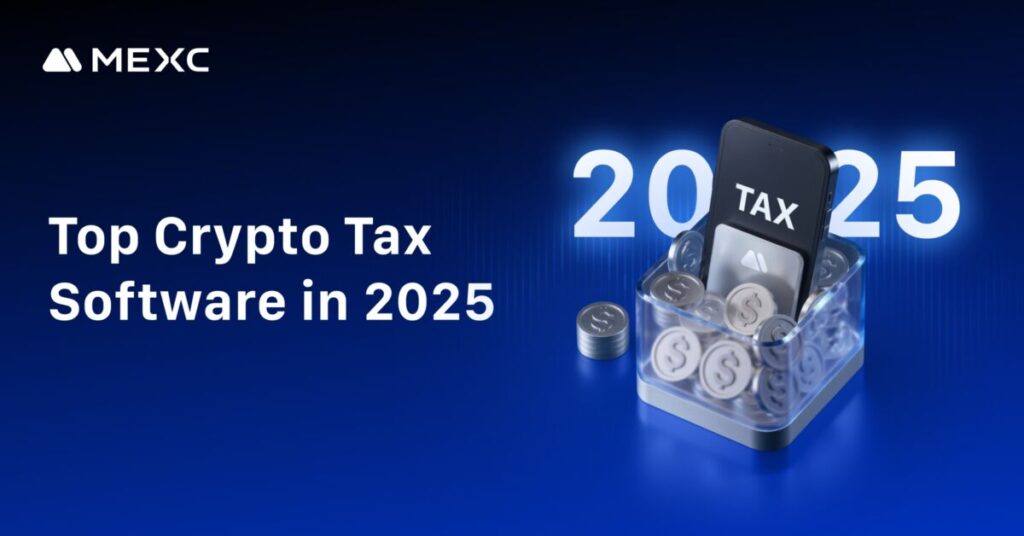
As cryptocurrencies become mainstream, one of the biggest challenges for investors and traders is dealing with taxes. Every trade, transfer, or reward can create a taxable event, and keeping track of these manually is not only time-consuming but also prone to error. With regulators tightening reporting requirements across the globe, having reliable crypto tax software has gone from being optional to absolutely essential.
In 2025, several platforms are making it easier for users to calculate gains, prepare reports, and stay compliant with local tax laws. These tools not only save valuable time but also provide peace of mind by ensuring accuracy. Choosing the right one can make all the difference when tax season arrives.
What is Crypto Tax Software?
Crypto tax software is built to take the stress out of reporting taxes on digital assets. Instead of juggling endless spreadsheets or trying to reconcile wallet transfers with trades, users can link their exchanges and wallets directly to the software. Through APIs or CSV uploads, all transaction data is collected in one place. The system then applies the tax rules relevant to the user’s jurisdiction, generating accurate reports such as profit and loss statements, capital gains summaries, and even ready-to-file tax forms.
Modern platforms go a step further by offering features like portfolio tracking, cost basis calculations, and support for more advanced activity. This includes staking rewards, yield farming, and NFT transactions, which are often complicated to track manually. In essence, crypto tax software transforms a process that once felt overwhelming into something clear, efficient, and manageable.
Why It Matters
As crypto portfolios become more diverse, the challenges of reporting increase. A single investor might hold Bitcoin on one platform, experiment with altcoins on another, and use DeFi protocols for lending or staking. Each of these activities can trigger taxable events. Spot trades, futures positions, staking rewards, and even airdrops may all require documentation. Missing just a few transactions could throw off the final calculations, leading to inaccurate filings or compliance issues.
Reliable tax software ensures that every trade is captured, every reward accounted for, and every report aligned with the rules of the local tax authority. For investors, this means not only peace of mind but also significant time savings, allowing them to focus on their strategies instead of paperwork.
Features That Make a Difference
The best tax platforms share certain qualities that set them apart. Integration is one of the most important. Direct connections with exchanges guarantee accurate trade history, eliminating the need for tedious manual uploads. KoinX, for example, integrates directly with MEXC, the best place for futures trading, giving traders the assurance that all positions are logged automatically.
Flexibility is another critical element. Since tax regulations differ widely between countries, software must adapt to local requirements while still providing consistent accuracy. Strong platforms also add value beyond compliance by giving traders portfolio-level insights into performance, profits, and exposure. All of these features are most effective when wrapped in a user-friendly design with transparent pricing that makes the service accessible to both new and experienced traders.
The Best Crypto Tax Software in 2025
1. KoinX
KoinX has become one of the most dependable options this year. Its real strength lies in automation, capturing every trade directly from exchanges like MEXC and converting the data into tax-ready reports that align with your country’s tax laws. It supports seamless integration with 800+ wallets, exchanges, and blockchains, enabling users to track their entire portfolio in one place. In addition to compliance, it provides portfolio insights that help traders gain a broader understanding of their performance.
With straightforward pricing and an easy-to-navigate interface, KoinX is accessible for beginners yet powerful enough for seasoned investors. For anyone seeking a single platform that combines tax compliance with smarter reporting, KoinX is hard to beat.
2. Koinly
Koinly remains one of the most trusted and globally recognised crypto tax platforms in 2025. Known for its precision and simplicity, it automatically imports transactions from over 700 exchanges and wallets, calculating capital gains, income, and transfers with remarkable accuracy. The platform supports multiple accounting methods such as FIFO, LIFO, and HIFO, making it adaptable to tax rules across dozens of countries.
Beyond compliance, Koinly doubles as a portfolio tracker, letting users monitor their unrealised gains, asset allocation, and total performance in real time. Its clean interface, clear cost structure, and exportable tax reports — including forms accepted by major authorities like the IRS and HMRC — make it an excellent choice for investors seeking both reliability and ease of use.
3. ZenLedger
ZenLedger has carved out a strong position among U.S. taxpayers thanks to its direct integration with IRS forms. It also handles DeFi transactions well, which is increasingly important for American investors exploring decentralised platforms. Its focus on the U.S. market, however, makes it less versatile for international users.
4. TokenTax
TokenTax is tailored for high-volume and professional traders who demand detailed reporting. Its advanced features and in-depth analysis tools make it one of the most powerful platforms available. That said, the complexity of its system may feel overwhelming to newcomers, which can limit its appeal to retail traders.
5. Accointing
Accointing appeals to investors who value simplicity. Its clean design and mobile app make it easy to use, particularly for those with lighter trading activity. While it works well for casual traders, it lacks some of the advanced reporting tools that professionals often require, making it better suited for beginners than experts.
Looking Ahead
The landscape of crypto taxation is evolving, and the tools supporting it are advancing quickly. Artificial intelligence is beginning to play a role in categorising transactions more intelligently, while support for NFTs, staking, and DeFi is expanding. At the same time, deeper integration with exchanges is becoming a standard expectation among users. These trends suggest that platforms like KoinX, which combine strong foundations with adaptability, are well-positioned to remain leaders in the years ahead.
Conclusion
Tax season has traditionally been one of the most stressful parts of crypto trading, but that is rapidly changing. With dedicated software, investors can replace hours of manual work with accurate, automated reporting. The result is not only time saved but also greater confidence that every detail has been handled correctly. As the industry matures, the importance of reliable tax tools will only increase. For traders and investors alike, choosing the right platform is no longer simply a matter of convenience — it has become an essential step toward staying compliant, protecting gains, and approaching tax season with peace of mind.
Join MEXC and Get up to $10,000 Bonus!



